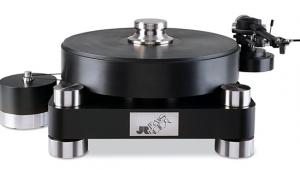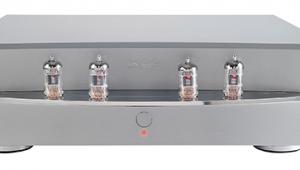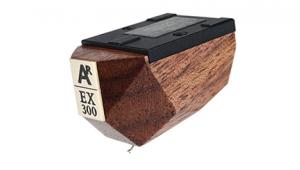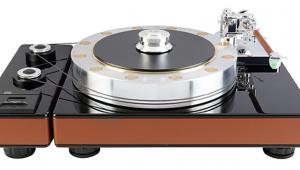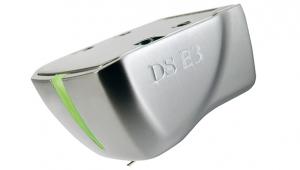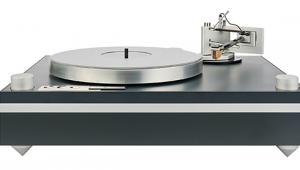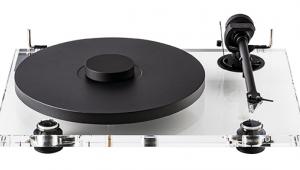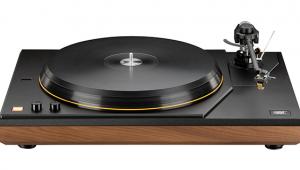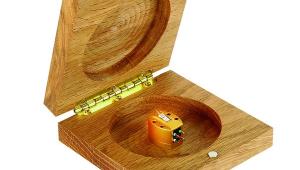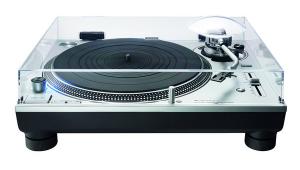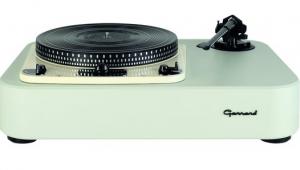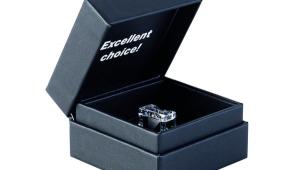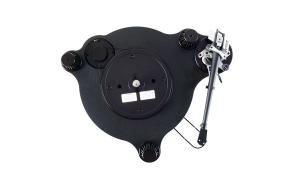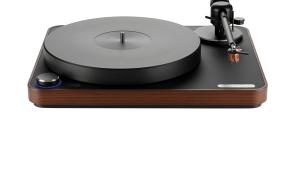Acoustic Signature Thunder (£6000)
From Southern Germany comes a seriously heavyweight deck that's built on solid foundations. But will the Thunder's roar light up the skies or rain on the parade?
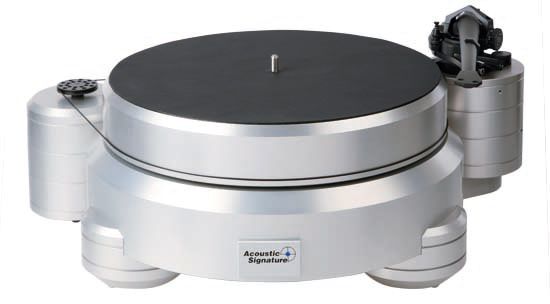
Thanks to pioneering automotive inventors such as Rudolf Diesel and Karl Benz, German engineering has a long established reputation for ‘quality and innovation’. These qualities could also be used to describe the nation’s hi-fi industry where brands such as ELAC and T+A have been proudly flying Germany’s audiophile flag for decades, paving the way for relative newcomers like Acoustic Signature, with its ranges of turntables which are regular players in the superdeck league.
The new Thunder boasts a number of features in common with the ‘milestone’ Ascona (costing £10k more). Like all models within Acoustic Signature’s portfolio, the Thunder relies on mass, rather than suspension, to minimise unwanted external vibrations reaching the platter’s surface. Readers will recall that the Acoustic Signature Barzetti [HFN June ’11] was no small fry at 14kg, although this is actually the bouncing baby in the company’s family. Like the Barzetti, the lower priced models within the company’s range offer plinths made from a choice of materials other than alloy, such as wood for the £1699 Manfred XL and glass for the £3396 Crystal. At the other end of the price scale, the Ascona, Thunder and Storm have base units machined from the same alloy as their platters: a form of Duralumin, which is far stronger than standard alloy.
SILENCERS APLENTY
These more expensive models also sport brass Silencer plugs pressed into their platters that are isolated by rubber rings, which is all designed to absorb unwanted energy [see box-out], starting with eight in the Storm through to the Ascona which has no fewer than 54! The Thunder employs 24 Silencers in its 15kg platter, which is damped on its underside with bitumen. The turntable’s overall weight is a hernia-provoking 41kg, so you’ll need a strong platform. Attached to the platter’s underside is a 55mm-long bearing shaft with a tungsten carbide ball fi tted to its tip. This ball locates against a selected selflubricating material inside the Thunder’s base called Tidorfolon.
We needed a bearing material able to cope with the increased pressure that our heavier platters create,’ says Gunther Frohnhöfer, company owner and MD. The bearing shaft spins in two sinter bronze sleeves fi xed within the bearing housing. Because these are also self-lubricating, Acoustic Signature states that the bearing assembly will require no extra lubrication over its lifespan.
Pre-drilled holes in the Thunder’s base allow for up to three arms to be fi tted to the deck, by simply bolting on more armboards. Even in standard form the Thunder can easily be adapted to support either 9in or 12in tonearms by re-jigging two bolts and sliding the armboard out. The Thunder’s motor is a sturdy synchronous design which runs silently. According to Acoustic Signature the motor has built-in speed control and is unaffected by changes to load. To drive it, the company supplies its flagship 24V AC digitally synthesised AlphaDIG PSU, which also comes with the Ascona.
The AlphaDIG has three switches to select power, 33.3 and 45rpm. Once a speed has been selected, a corresponding LED on the PSU flashes rapidly until it’s sensed that the platter has reached speed, at which point the LED becomes static.
EASY SET-UP
The Thunder’s anodised surface is beautifully finished and every aspect of the deck has a solid, reassuringly over-engineered feel, from the chunky 25mm-thick armboard right down to the no-nonsense big M6 bolts used to attach the feet. Installation in my system was a doddle. Simply site the base, level up the feet, gently ease the platter into position and then place the motor within an inch of the platter anywhere around its circumference. All that’s left to do is attach the stretchy square-section belt, which can be a tad tricky (it runs close to the bottom of the platter and can easily roll underneath); but once in place the belt behaves and runs smoothly.
A quick hand spin of the platter before attaching the belt demonstrated how fi nely engineered the deck is. Despite its weight, the platter will spin effortlessly and silently until coming to a gentle stop moments later. A quick ‘knuckle wrap’ test returns a resolutely dead thud.
For sonic reasons Acoustic Signature favours a leather platter mat which came supplied – a felt version is also available. If you want a record clamp from the same stable, Acoustic Signature offers two versions as optional extras priced at £80/£165. (Although for a deck costing a few quid shy of £6k, you could be forgiven for expecting one as part of the package.)
GENTLE GIANT
The deck arrived fitted with an SME Series V tonearm to which I set up a Benz Micro ACE MC cartridge. The soundstage created by the Thunder is simply huge. Starting with Donald Fagen’s 1982 The Nightfly [Warner 92.3696-1], the Thunder immediately challenged my perception of wall boundaries within my listening room, seemingly pushing the side-walls out by a couple of feet. The Thunder’s star quality, however, isn’t just the size of the sonic picture it paints, but the way it allows music to inhabit the landscape it creates. Sounds and instruments are evenly dispersed and each is given plenty of freedom to breathe and be enjoyed. Nothing competes for space.
Perhaps because it comes just before the runout groove, on many a deck ‘You Can’t Always Get What You Want’ from The Rolling Stones’ 1969 album Let It Bleed [Decca SKL 5025] can quickly go from rhythmically simple to confused and congested. The keyboard, cymbals and lead guitar can all seem to compete with each other as the track reaches its climactic conclusion. Hearing this track via the Thunder was a different story: the deck seemed to place its iron fist on each band member’s shoulder, gently manoeuvring them into free space, allowing the detail of each instrument to flow forth and build to the song’s pinnacle, which left me nothing short of euphoric.
While the Acoustic Signature retrieves detail like few others I’ve heard, what it’s not is forward-sounding. I’ve encountered few examples of hi-fi that retrieve such astonishing levels of detail while remaining sufficiently mellow to simply allow the listener to enjoy the music. When listening to the Fagen album, for example, it was the minor pieces in the songs that really made me sit up, not because they were forced to the front of the mix: it was the way in which the Thunder pulled them out and allowed their contributions to be clearly heard and appreciated without being overshadowed by louder instruments. The finely picked guitar notes in the right channel on ‘Green Flower Street’ had just the right amount of presence to subtly ‘funk up’ the track.
On the self-titled 2003 Great Lake Swimmers album [Fargo FR21196], recorded in an abandoned grain silo, the background noises can come across as an intrusive hiss on some systems. But the Thunder got closer to the truth. On tracks such as ‘This Is Not Like Home’ the Acoustic Signature clearly revealed the ‘hiss’ to be crickets and similar noises typical of a summer evening in such an unusual venue. Reproduced properly, they add to the album’s ambient melancholy.
REAL VERVE
Listening to Chris Rea’s Auberge album from 1991 [eastwest 9031- 73580-1] the Thunder added a welcome drop of honey to Rea’s gravelly vocals which can sound somewhat dry on lesser systems. Through the Thunder, Rea’s gently sung intro to ‘Heaven’ flowed forth with a sumptuous chocolatey texture, bordering on Barry White. Given the deck’s epic weight and build, I’d anticipated plenty of deep, full bass which the Acoustic Signature certainly delivers, however the deck does not allow the music to wallow in the lower registers. Instead the bass is nimble, lithe and nicely controlled with real verve. The double-bass on Sinatra’s ‘On The Road To Mandalay’, for example [Capitol SY-4528], bounced the track along at a pace, each note energetically plucked with youthful vigour. Similarly within the Chris Rea album, the Thunder allowed the walking bass line on ‘And You My Love’ to underpin the track and could be clearly heard playing off Rea’s voice, shifting the song’s mood through tempo and key changes.
The Thunder had the rare ability to treat every LP that graced its leather adorned platter with equal respect, despite my best efforts to wrong-foot it. Treble was clear, smooth and lucid. I particularly admired how the deck treated the horns on the Sinatra album. Even on the warmest systems the brass section can sound particularly harsh at high levels. The Thunder, however, managed somehow to convert these difficult sections from ear-splitting to exciting – and to my surprise I caught myself notching the volume up, rather than down.
VERDICT
Beautifully designed and exquisitely engineered, this nocompromise deck is simple to use and should provide a lifetime of hassle-free performance. If you’re in the market for a top-class vinyl spinner that requires minimum fettling then the Thunder could be the answer. Its massy build and state-of-the-art electronics combine to give a sound that’s expansive, rich with detail and effortlessly involving.
Originally published in the November 2011 issue


